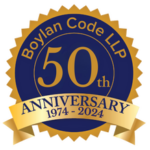By David K. Hou, Esq.
Good news! In my (fake) job as an advisor at a technology consultancy, I have accumulated 50,000 followers on my “@TechFanaticDavid” Twitter account, and through my diligence I have amassed enough contacts on LinkedIn to be within four degrees of separation from both Bill Gates and Oracle’s Larry Ellison. I can count Apple’s Tim Cook as one of my “Friends” on Facebook. By any metric I have achieved an enviable status via social networking. So long as I remain in the employ of my employer, of course, it has no complaints that my tweets and communications reach such an esteemed and large audience of potential business opportunities. As they inevitably do, of course, problems arise when employment ends. Dreams of my own grandeur aside, two questions predominate: what happens to an employee’s social media followers, contacts, goodwill, and even social media identity – do they belong to the employee, transferrable upon departure, or does everything belong, lock, stock and barrel to the former employer? And if so, what is it all worth, and how is that worth calculated? Some recent court cases are beginning to explore answers to these questions.
The traditional principle that the product of an employee’s endeavors, conducted at the employer’s behest, during work hours, and using the employer’s time and equipment, are the property of the employer, is not in dispute, but the ubiquity and ease of access of use of social media networks test these boundaries. The age-old adage that the speed of technology outpaces the application of existing law to it has never been more apparent than it is today, particularly where new technologies cause traditional notions of “private” versus “public”, and “personal”, versus “business”, to become increasingly intermingled. It is not uncommon nowadays to see an employee use a “company” Twitter account to share both personal and business-oriented communications. LinkedIn goes further by serving a dual function of allowing users to promote their employers as well as themselves, individually, through displayed work history and personal recommendations. These new forms of use only highlight the importance for employers to implement comprehensive social media policies and guidelines that cover not only employee social media use conditions, but also cover ownership rights as well.
We see in recent cases the potential risks and consequences of not having such a policy in place. On October 4, 2012, in Eagle v. Edcomm, a federal district court in Pennsylvania determined that an employer’s wresting of control over a former employee’s LinkedIn account for the purpose of obtaining and data-mining her contact list, which account had been set-up and maintained in part by the company, did not constitute a violation of the Computer Fraud and Abuse Act (“CFAA”) because the mere temporary loss of access to her contacts was not specifically quantifiable as damages. But in so ruling the Court also preserved for trial the employee’s various state law claims involving the employer’s alleged invasion of the employee’s privacy, and misappropriation of her identity. Although the employer’s right to the employee’s LinkedIn contacts was not directly disputed, the pertinent issue remained as to the employer’s right to access the password protected account, even where the employer always had knowledge of it and used it to help the employee maintain the account. In this case, the employer’s social media policy asserted ownership over employees’ LinkedIn contacts, but failed to sufficiently implement measures regarding access to such accounts upon termination of employment.
Although the plaintiff in Eagle was unable to specify monetary damages attributable to her loss of access to her LinkedIn contacts, at least for CFAA purposes, social media contacts are, in many ways, analogous to an “address book” or database of business prospects. As such, they may retain value to an employer as some form of proprietary business information. At least, that is the approach taken by another former employer in PhoneDog v. Kravitz. At issue in PhoneDog was the employee’s right to the 17,000 Twitter followers of his “PhoneDog_Noah” account. The former employer had originally permitted the former employee to continue using the account port-employment, but then had a change of heart after the employee sued for unpaid compensation and joined a competitor, and the employee refused to turn over the account. In dispute were whether the Twitter account was opened or maintained at the employer’s behest, and whether it was in furtherance of the employer’s business interests, particularly where the employee also used the account to convey matters of personal interest as well.
Even assuming that the account itself (and even including the followers) is property of the employer – one giveaway would be the use and prominence of the employer’s name in the actual Twitter handle – the ultimate issue is what, if any, damages did the employer suffer through the employee’s refusal to turn the account over? I.e., what is each of the followers worth? The employer asserted $340,000.00 in damages (approximately $2.50 per follower), but the Court has yet to rule on the merits of the claims or the viability of the employer’s damages calculation. In PhoneDog, the employer’s failure at each opportunity to implement an enforceable social media policy only increases its ultimate burden to demonstrate an actionable claim.
Further complicating the damages analysis is the fact that the ephemeral nature of Twitter followers and other social media contacts renders it difficult to verify their legitimacy. There is a competitive aspect to social networks like Twitter that favor accumulation, quantity over quality; people become social media followers, fans, or connections for many different reasons, which may have nothing to do with the employee’s employer, and therefore may render a per capita assignment of value meaningless.
Ultimately, it is deceptively straightforward to simply implement a social media policy that governs an employee’s usage of social networks and asserts an employer’s ownership rights over contact and content; being able to reliably quantify the value of such information requires both competency of how such emerging technologies uniquely function in the business context, and diligence in having the correct policies in place to address each such challenge. Having a proactive and comprehensive social media usage and ownership policies in place can go a long way to preventing the messy (and costly) disputes on display in PhoneDog and Eagle. After all, an employer that finds itself faced with the unenviable task of needing, in litigation, to assign a monetary amount to a former employee’s Twitter followers may well have already lost the war.
David K. Hou is a Senior Associate at Boylan Code LLP, concentrating his practice on Commercial Litigation and Intellectual Property matters. For more information, please contact David at (585) 232-5300 or dhou@boylancode.com.


